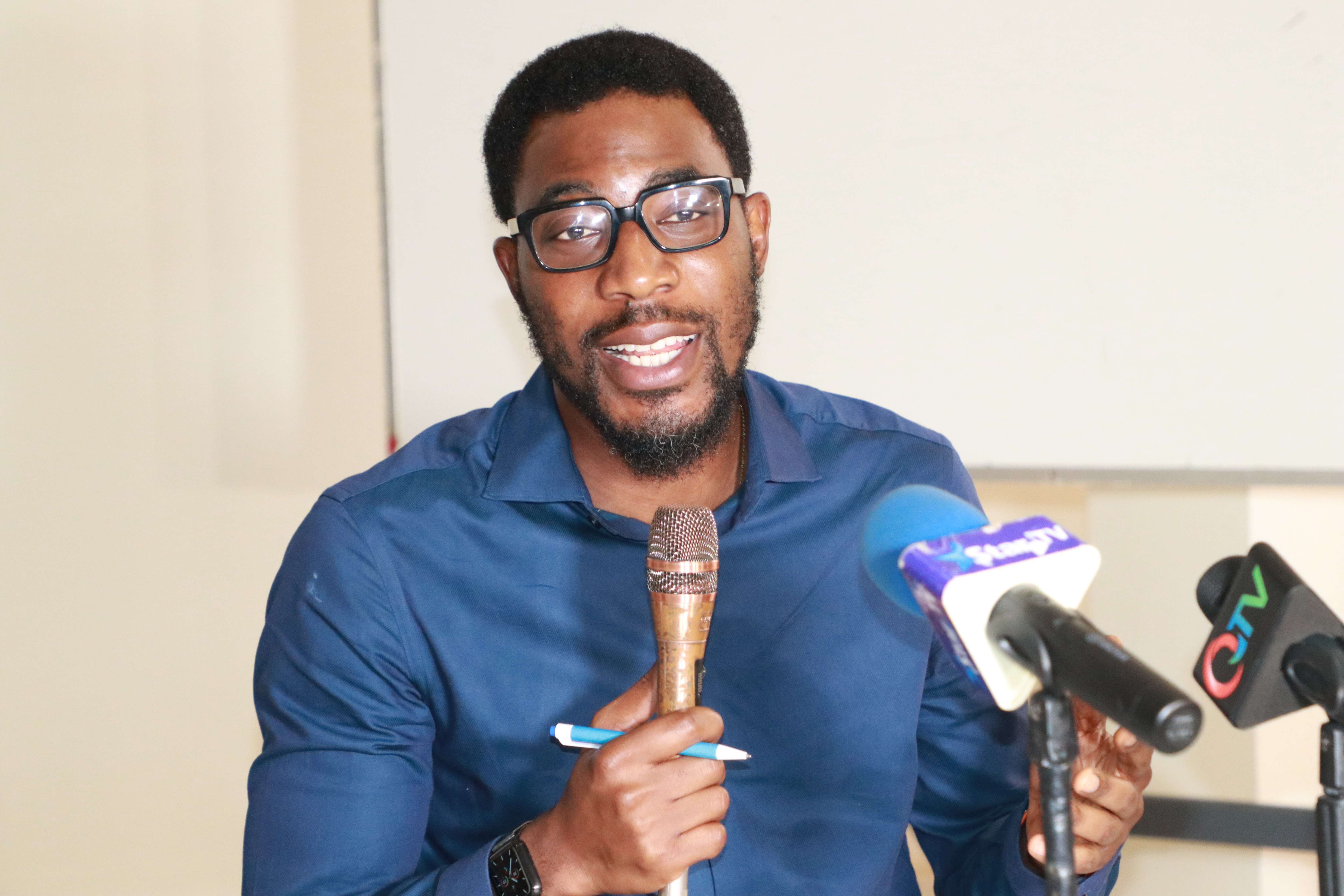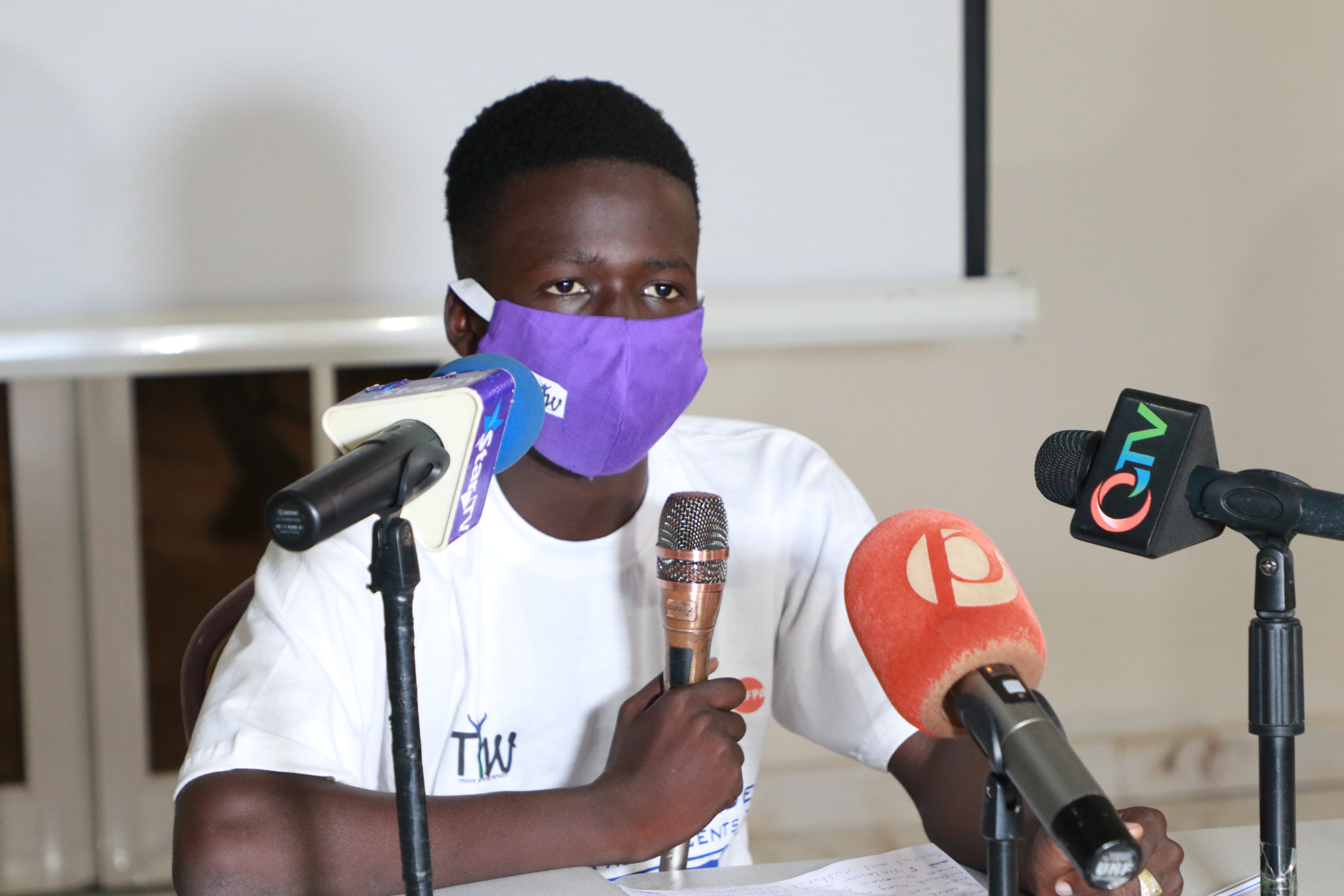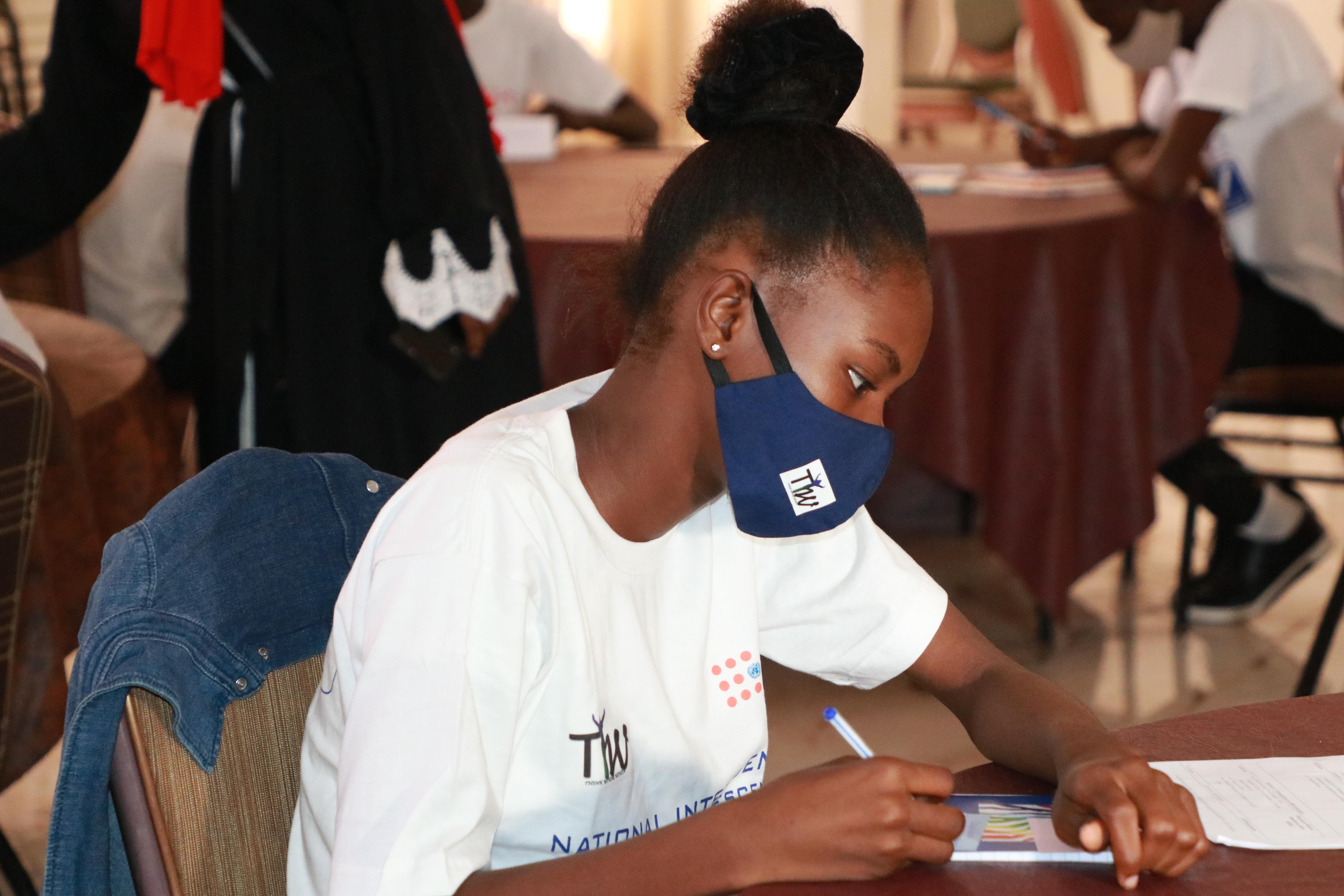In order to attain gender equality and eradicate all forms of Gender-Based Violence (GBV), there is a need to involve and seek the contributions of young people, adolescents, traditional and religious leaders, among many others. However, in order to realise these through sustainable actions, adolescents and young people must be at the centre of efforts. For this reason, UNFPA is supporting organisations in The Gambia such as Think Young Women, to stir national conversations with adolescents from all regions of the country, on the need to end GBV and identify the roles they can play in this effort.
Having already held adolescent convening on GBV in the Upper River and Central River Regions of The Gambia, UNFPA Country Representative Mr. Kunle Adeniyi on 4 September 2020, presided over the opening ceremony of the Inter-Gender Convening of Adolescents on GBV held in the Greater Banjul Area, bringing together adolescents aged 12 to 17.
According to Mariatou J. Newlands, Programmes Manager of Think Young Women, this initiative was designed to enhance adolescents’ understanding of GBV and mobilise their contributions towards ending the practice in their communities. According to her, the initiative aims to break the current barriers that prevent engagement between boys and girls and further aims to provide a clear picture, on how each group perceives GBV and recognise what can be done to help end its practice in their communities.

Speaking at the event, the UNFPA Representative highlighted that adolescents play a crucial role in raising community awareness about Female Genital Mutilation, Child Marriage and other forms of GBV, as well as calling on their community and national leaders to take action to address these issues, by speaking up through institutions like the Children’s National Assembly and other youth-led initiatives.
According to Mr Adeniyi, the COVID-19 pandemic also means that a lot of girls are being sent off to get married or undergo FGM and is a contributing factors to the recent surge in cases of sexual violence in the country. As such, in order to help address these issues and reduce the incidences of GBV during the pandemic and beyond, he said UNFPA supported the Ministry of Women, Children and Social Welfare to establish a National Gender-Based Violence helpline 1313, through which people can report cases of violence happening to them or others in their communities and get the necessary help. He encouraged the participants to share news about the helpline with their parents, siblings, friends and neighbours, in order to contribute towards creating a Gambia free from violence against all persons.
He concluded by reiterating that

“We are hopeful that if each of you boys and girls here, go back to your homes and talk to your parents, share the lessons you learnt from this activity, we will eventually have a world free from violence, where every girl, woman, boy and man, will reach their potentials, contribute towards the development of their countries and communities, and become their best selves.”
On his part, Honourable Ebrima Colley, Deputy Speaker of the Children’s National Assembly used the occasion to call on the government and partners to accelerate efforts towards ending GBV in The Gambia, as it is not just an impediment to the realisation of the rights of women, girls and boys, but also hinders National development. According to Hon. Colley, as adolescents, they have voices they can use in order to protect themselves and their peers. Thus, this gathering will help to build their understanding of GBV, the factors that influence its occurrence in communities and identify ways to support efforts to address it.

UNFPA continues to support government and civil society organisations such as Think Young Women to advance gender equality and end violence through programmes like these, to influence boys and girls to abandon harmful stereotypes, embrace respectful, healthy relationships, and support the human rights of all people, everywhere.


